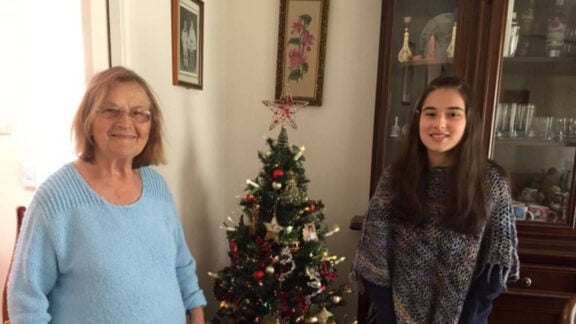Powerful and shocking, Dead Europe is an exploration of what lies beneath Europe’s cosmopolitan veneer – a cynical reality of hatred and persecution. Isaac, a Greek Australian photographer from Sydney journeys to Europe for the first time to scatter his father’s ashes. He has embarked on a voyage to the sites of his imagination – the Greece of his parents; the Paris of his father’s university days and Budapest.
But the new Europe he finds is a dirty, desperate, brutal world of child prostitution, drug addiction, and racial hatred. The Europe he crosses is a haunted landscape, full of fear and exploitation. Isaac’s bad trip becomes interwoven with the story of his family’s curse – a disturbing tale of ancient superstition and anti-semitism. It’s a film told on a broad canvas, from the refugee-lined alleys of Athens, to a Dionysian carnival in Papigo – the remote mountain village in northern Greece that was his father’s birthplace, from a Roma camp in Paris to Budapest club where adolescent boys are sold for sex.
It’s gritty, shocking stuff, a window into a Europe we’d rather not see. But you can’t take your eyes off the screen in this disturbing revelation of a Greek diaspora family’s dark secret. The story – an adaptation of Christos Tsiolkas’ 2005 novel – is about a journey into the heart of darkness to meet the forgotten people of Europe says its director Tony Krawitz – a Europe that has descended into a new abyss after its deliverance from the turmoil of the 20th Century.
“It’s about a character who thinks he knows about the world, goes off to a dangerous place, and finds not only the hatred that lurks there, but hatred within himself,” says Krawitz, who says he was drawn to the book partly because of his family’s heritage.
“I’m Jewish and my parents came from Europe to Australia because of persecution, so that resonated for me.”
But the film is no straightforward narrative depicting any one group’s persecution in the ascendancy, rather the story depicts the latest generations – from Muslim refugees to Roma peoples – bearing the brunt of Europe’s intolerance to their plight. One theme pursued is the second generation diaspora experience. The tight inventive screenplay by Louise Fox is absolutely true to the spirit of the book.
“It’s that idea of being in the southern hemisphere – the so-called new world, and reflecting back on the old world. I found that fascinating,” says Krawitz. “As a non-Greek I wanted to make sure I got the details right. The lead actor who plays Isaac – Ewen Leslie – is not Greek either, so it was a challenge to both of us. Christos Tsiolkas helped us with a lot of that.
“Christos is one of the few contemporary writers in Australia who is not afraid to shine a light on what we find most uncomfortable,” says Krawitz, who describes the film as a portrayal of the forgotten people of Europe. “It’s about history, guilt and secrets, how the sins of the fathers are passed on to the sons. “Isaac is forced to confront the anti-Semitism of the past, the embedded bigotry in the bones of Europe and the nature of inherited guilt … deep hatreds and superstitions of the past and how they bleed into the present day.”
Given the story was conceived more than ten years ago, the film reminds us of Tsiolkas’ prescience on issues like refugees and the upsurge of racism in Europe, as the dispossessed of the Middle East, Iraq and Afghanistan have increasingly sought shelter from the storm. Tim Krawitz makes his first appearance as a feature director with Dead Europe.
It’s a highly-accomplished debut, full of sharp observation and authenticity. With a haunting music score by Jed Kurzel representing Isaac’s psychology and the ancientness of Europe, the sound of the film is remarkable. “We just didn’t want to go down the track of using classic rembetika, as much as I love it. That felt too easy a choice,” says Krawitz. The director’s intentions – to avoid easy choices and make a film that has a verite integrity to it – succeed masterfully. Ewen Leslie’s performance as Isaac is mesmerising as his character’s mental state unravels, but then all the cast give fearless, utterly convincing performances.
None more so than Marton Csokas’ excellent portrayal of Isaac’s estranged older brother -Nico, eking out a tortured existence as a junkie and pimp in Budapest. Shot over eight weeks in two continents and four countries, cinematographer Germain McMicking makes Dead Europe a powerfully visual film, shifting from a sense of space and light in Sydney and Greece to something much more enclosed and darker as Isaac begins his descent into psychological turmoil.
Often Dead Europe seems like a drama-documentary – reality and fiction mixing seamlessly as the narrative pulls you to the film’s thought-provoking and mysterious climax. Poetic and full of ideas this is a harrowing encounter with a Europe that we’re less familiar with, but it’s also a dynamic thriller – gripping and urgent, right up to its last fraught frame.
Tony Krawitz will be at Q@A screenings of Dead Europe in Melbourne on Tuesday 13th November (6.45pm Cinema Nova, Carlton), and on Wednesday 14th November at the Jewish Film Festival screening (8.45pm Classic Cinema, Elsternwick). Dead Europe opens in cinemas on general release on November 15.








